Monday, May 16, 2011
COMMUNIQUE OF RESOLUTIONS REACHED AT THE ONE DAY STAKEHOLDERS’ SUMMIT ON THE CHALLENGES OF THE HIGH COURT OF LAGOS STATE (CIVIL PROCEDURE) RULES 2004” ORGANISED BY THE NIGERIAN BAR ASSOCIATION, IKEJA BRANCH AT HER NEW BAR CENTER OLD LAGOS STATE GOVERNMENT SECRETARIAT GRA IKEJA ON THURSDAY, 21ST OCTOBER 2010
The programme started by 12:55p.m with Mrs. Bisi Akindiji saying the opening prayer. The Goodwill Message was given by Honourable Justice Opeyemi Oke on behalf of the Chief Judge of Lagos State, Hon. Justice Inumidun Akande (Honourable Justice Oke is the current chairman of the Rules Committee). Honourable Justice Oke identified the following areas as being crucial to the deliberations:
(1) PROBATE RULES
(2) INCLUSION OF ADR IN THE COMING AMENDED RULES
The welcome address was delivered by the Chairman of the Nigerian Bar Association, Ikeja Branch – Mr Adebamigbe Omole who appointed Mr. Femi Falana as acting chairman of the summit. Mr. Layi Babatunde SAN came later and tool over Mr. Femi Falana in his capacity as acting chairman stated the following views:
a) How to address the ways in which Judges contributes to delay in the administration of justice for example by insisting that the matter must go on whether or not a junior was holding brief or a senior.
b) Senior Advocates of Nigeria may only call his case out of turn if his case is listed for mention.
c) Judges should take up the initial role of promoting amicable resolution of dispute as it was before the High Court of Lagos State (Civil Procedure) Rules 2004.
d) When judges are not going to sit, the Court’s Registrar should inform Counsel on both sides. The floor was now opened for general opinions/contributions. The following Orders were deliberated on and suggestions made by participants at the Summit.
ORDER 1 (ONE) OF THE HIGH COURT OF LAGOS STATE (CIVIL PROCEDURE RULES 2004 APPLICATION AND INTERPRETATION
An observation was made that “Taxing officer” is defined as follows:
“Taxing officer” means the Chief Registrar or such other officer of the Court as the Chief Judge may appoint to tax costs.
It was suggested that to clear any ambiguity, the word “costs” for the purposes of the definition of “Taxing officer” should be defined.
RESOLUTION OF NIGERIAN BAR ASSOCIATION IKEJA – It will do no harm if the word cost is equally defined, by so doing, ambiguities would be reduced if not totally obliterated.
ORDER 3 (THREE) OF THE HIGH COURT STATE (CIVIL PROCEDURE) 2004
FORM AND COMMENCEMENT OF ACTION
Order 3 Rule 3 of the High Court of Lagos State (Civil Procedure) Rules 2004 provides as follows
2(1) All civil proceedings commenced by writ of summons shall be accompanied by:
(a) Statement of claim;
(b) List of witnesses to be called at the trial;
(c) Written statements on oaths of the witnesses and
(d) Copies of every documents to be relied on at the trial.
(@) Where a claimant fail to comply with the Rules (1) above, his originating process shall not be accepted forfiting by the Registry. An observation was made that there is no clear indication on how to deal with a witness under subpoena duces tecum or ad testificandum. If a witness under subpoena is named but his witness Statement on Oath does not accompany the Originating Processes at the time of filing, is a registry entitled to reject such a process under Order 3 Rule 2 (2) of the High Court of Lagos State (Civil Procedure) Rules 2004?
In other words, is a witness under subpoena supposed to depose to a witness Statement on Oath at the period of filing of Originating Processes or thereafter?
RESOLUTION OF NIGERIAN BAR ASSOCIATION IKEJA
There is a procedural deficit. The Rules should be more explicit on the status of the character of evidence as it relates to a witness under subpoena. Is it compulsory that his evidence must be reduced into writing and under Oath?
ORDER 5 (FIVE) OF THE HIGH COURT OF LAGOS STATE (CIVIL PROCEDURE) RULES 2004
EFFECT OF NON COMPLIANCE
Order 5 Rule 1 (1) of the High Court of Lagos State (Civil Procedure) Rules 2004 provides thus:
“Where at any stage in the course of or in connection with any proceedings there has by reason of anything done or left undone been a failure to comply with the requirements as to time, place, manner, or form, the failure shall be treated as an irregularity and may not nullify such step taken in the proceedings. The Judge may give any direction as he thinks fit to regularize such steps.”
Order 5 Rule 1(3) of the High Court of Lagos State (Civil Procedure) Rules 2004 further stipulates thus:
“The Judge shall not wholly set aside any proceedings or the writ or other originating process by which they were begun on the ground that the proceedings were required by any of these rules to be begun by an originating process other than the one employed”
Should a Judge set aside a proceeding commenced by Originating Summons merely because it ought to have been commenced by Writ of Summons rather than ordering a conversion of the Process from Originating Summons Process by ordering filing of pleadings in line with the decisions of the Court of Appeal and the Supreme Court?
There equally appears to be a conflict between the provisions of Order 5 Rule 1 and Order 5, Rule 3 of the High Court of Lagos State (Civil Procedure) Rules 2004. In Order 5 Rule 1, of the High Court of Lagos State (Civil Procedure) Rules 2004, it appears that where a matter ought to be commenced by Writ of Summons and the matter is commenced by Originating Summons. This nullifies the Proceedings inspite of several decisions of higher courts in the judicial hierarchy to the contrary. What proceedings qualify for outright nullification as provides in Order 5 Rule 1 of the High Court of Lagos State (Civil Procedure) Rules 2004 and what proceedings qualify for partial set aside as provided in Order 5 Rule 3 of the High Court of Lagos State (Civil Procedure) Rule 2004? The ambiguity should be resolved by the Rules.
RESOLUTION OF NIGERIAN BAR ASSOCIATION IKEJA
- The Rules should be more explicit, clearer and should reflect the position of extant decisions of superior courts of records.
ORDER 6 (SIX) OF THE HIGH COURT OF LAGOS STATE (CIVIL PROCEDURE) RULES 2004
ISSUE OF ORIGINATING PROCESS
Order 6 Rule 6 and 7 of the High Court of Lagos State (Civil Procedure) Rules 2004 provides thus:
“6 (1) The life span of every originating process shall be 6 months.
(2) If a Judge is satisfied that it has proved impossible to serve an originating process on any defendant within its life span and a claimant applies before its expiration or renewal of the process, the Judge may renew the original or concurrent process for 3 months from the date of such renewal. A renewal originating process shall be in Form 6 with such modifications or variations as circumstances may require.
Order 6 Rule 7 of the High Court of Lagos State (Civil Procedure) Rules 2004 provides thus:
“A Judge may order two renewals in each case strictly for good cause and upon prompt application provided that no originating process shall be in force longer than a total of 12 months. The Registrar shall state the fact, date, and duration of renewal on every renewed originating process”
The appendix to the Rules, particularly Form 1 which is the Writ of Summons Form stipulates as follows:
“This writ is to be served within three calendar months from the date thereof, or, if renewed, within three calendar months from the date of the last renewal, including the day of such date, and not afterwards.”
What then is the life span of the Writ of Summons, 6 months or 3 months?
Secondly, it appears under the provisions of Order 6, Rule 7 of the High Court of Lagos State (Civil Procedure) Rule 2004 that there is no possibility of the renewal of a writ that is 12 months old.
In Kolawole Vs. Alberto (1989) ANLR 137, the Supreme Court held as follows:
“Order 5 Rule 6 applies not only to a writ which is about to expire but also to one which has in fact expired. I think the provision about applying for renewal within the valid life of the writ may haw fed many to assume that unless the writ is made within twelve months, it cannot be made afterwards but it is obvious that if the Rule were interpreted in that manner, it would work hardship on the plaintiff, it seems to me that such a provision has been inserted in the Rule in order to distinguished a vigilant plaintiff from a lethargic one. Obviously a vigilant litigant would in accordance with the Rule, apply before the writ actually expires, but this does not mean that a litigant who applies soon afterwards should not be heard.”
RESOLUTION OF NIGERIAN BAR ASSOCIATION IKEJA
- The Rules should be much more precise, definite and reflective of extant decisions of the apex court.
ORDER 10 (TEN) OF THE HIGH COURT OF LAGOS STATE (CIVIL PROCEDURE) RULES 2004
ORDER 10- DEFAULT OF APPEARANCE
ORDER 20 – DEFAULT OF PLEADINGS
Even though not expressly prohibited by the Rules, default judgements are not usually given for default of appearance and defence in matters possessing declaratory reliefs.
Where a Defendant fails to respond to an Originating Process containing declaratory reliefs, the practice is that the claimant is asked to take out Pre-trial Conference Forms after which the matter goes for Pre-Trial Conference and thereafter remitted to the Chief Judge for re-assignment to another Judge for trial.
It was suggested that this should not be so as considered time is wasted thereby. Since issues have not joined, there is no need for the matter to proceed to the stage of Pre-Trial Conference as there will be no agenda for the Pre-Trial Conference. The Judge seised of the matter should be entitled to set the matter down for hearing and determine same.
Also, can default Judgement be given in Land under Order 20 Rules 6 and 9 of the High Court of Lagos State (Civil Procedure) Rules 2004?
In Yusuf Vs, Ilori (2008) 6 NWLR part 1083 page 330 at 335 paragraphs F-H, per MSHELIA J.C.A on whether Default Judgement under Order 24 Rule of the High Court (Civil Procedure) Rules applies for declaration of Title, trespass and injunction stated as follows:
“Where, as in this case, the defendant did not file any defence to join issue on the claim of the plaintiff/default judgement could be given for declaration of title, trespass and injunction, since the law does not require proof of impliedly admitted facts.”
Furthermore, in none Land and Declaratory matters, should a Judge still ask a Claimant to initiate Pre-Trial Conference proceedings in the absence of adverse pleadings?
Assuming a Claimant files a Motion for Judgement in default of pleadings, can’t a Judge take that application and deliver a Judgement by reason of Order 25 Rules 2 and 3 of the High Court of Lagos State (Civil Procedure) Rules 2004 which many Judges’ have interpreted to mean that all Applications should be taken at Pre-Trial Conference stage?
Order 25 Rule 1 of the High Court of Lagos State (Civil Procedure) Rules 2004 says:
“Within 14 days after dose of pleadings the claimant shall apply for issuance of a Pre-Trial Conference notice as in Form 17”
Where there are no pleadings from the Defendant, is the Claimant still enjoined to take out Pre-Trial Conference notice as in Form 17?
RESOLUTION OF NIGERIAN BAR ASSOCIATION IKEJA-
The intention of the makers of the Rule should be more articulately and clearly expressed to avoid unnecessary confusion and uncertainty.
ORDER 24 (TWENTY-FOUR) OF THE HIGH COURT OF LAGOS STATE (CIVIL PROCEDURE) RULES 2004
AMENDMENT
Order 24 Rule 1 of the High Court of Lagos State (Civil Procedure) Rules 2004 provides thus:
“A party may amend his originating process and pleadings at any time before the close of Pre-Trial Conference and not more than twice during the trial but before the close of the case.”
The provision restricting amendments to twice even in deserving cases appears too rigid, inflexible and could defeat the cause of justice.
RESOLUTION OF NIGERIAN BAR ASSOCIATION IKEJA
– Even though amendments are restricted to twice during trial, some discretion should be given to the pre-trial Judge when there are compelling reasons ex debito Justicae to allow further amendments. In other words, there should be a proviso to this rule.
ORDER 3 (THIRTY) OF THE HIGH COURT OF LAGOS STATE (CIVIL PROCEDURE) RULES 2004
PROCEEDINGS AT TRIAL
It was suggested that where pre-trial Conference has been narrowed down and there is no situation of pre-trial settlement, then the pre-trial judge should go on with the trial instead of having the case re-assigned and thereby causing immense waste of time. This is also in line with the S. 60 High Court Law Cap N3 Laws of Lagos State 2003 which provides that a case of a litigant shall be heard by a single Judge. The said Section 60 of the High Court Law Cap N3 Laws of Lagos State 2003 provides as follows:
“Subject to the provisions of this or any other enactment and subject to any rules of court, all civil and criminal cases or matters and all proceedings in the High Court and all business arising thereout shall so far as is practicable and convenient be tried, heard and disposed of by a single Judge, and all proceedings in an action subsequent to the hearing or trial down to and including the final Judgement or order shall so far as is practicable and convenient be taken before the judge whom the trial or hearing took place.”
This view did not meet with much approval as it was contended in replicando that by reason of the fact that a pretrial Judge descends into the arena at the Pre-trial Conference stage, if he is allowed to conclude the case after the Pre-Trial Conference, the likelihood of bias cannot be ruled out.
RESOLUTION OF NIGERIAN BAR ASSOCIATION IKEJA
-To accommodate the pre-trial and Trial Judge properly, a second look has to be taken at Section 60 aforementioned to eliminate an obvious conflict of Laws.
ORDER 44 (FORTY-FOUR) OF THE HIGH COURT OF LAGOS STATE (CIVIL PROCEDURE) RULES 2004
COMPUTATION OF TIME/PAYMENT OF PENAL FEES
Where the issue of penal fees is to be paid by the litigant, it was argued that this sometimes makes justice inaccessible to the litigant. It was recommended that there should be a ceiling to this payment. Also it was asked if the payment of penal fees prevents from challenging the application to regularize late pleadings.
Who has the right to calculate the number of days of default?
It was suggested that the N200:00 (Two Hundred Naira) penalty paid should be reduced.
It was also suggested that the Judge should have some discretion as to whether penalty should be paid or not. In deserving cases, the judge may waive or reduce the penal fees.
For example, if a matter is brought to a Court and the Defendant desires a Stay of Proceedings for the purpose of referring the matter to arbitration and Conciliation Act, Cap A 18, Laws of the Federation of Nigeria 2004 provides as follows:
“(i) if any party to an arbitration agreement commences any action in any court with respect to any matter which is the subject of an arbitration agreement, any party to the arbitration agreement may, at any time after appearance and before delivering any pleadings or taking any other steps in the proceedings, apply to the court to stay proceedings.”
If the Court takes the application for a reference of this matter to arbitration and delivers a Ruling in about 8 months from the date of the Application and the Ruling and overrules the party seeking the reference to arbitration, such a party will now be bound to file his defence which certainly would have been out of time.
Will it be right and accord with the notions of justice to penalize him for failure to file a Statement of Defence on time since he is Statutory forbidden from filing a Statement of Defence before taking his objection that the matter e referred to Arbitration in line with Section 5 of the Arbitration and Conciliation Act, Cap A18, Laws of the Federation of Nigeria 2004?
Where a Counsel to a litigant demonstrates patent and latent negligence and refuses to file processes in time by reason of which he is debriefed.
Will it be fair to ask such a litigant to pay penal fees for late filing of his Statement of Defence against the run of decisions that a litigant should not suffer for the mistakes of his Counsel?
It was also suggested that the opposing party who has suffered delay should be allowed to share in the costs with the Government.
The sum of N200:00 (Two Hundred Naira) should be retained.
The calculation of default should be done by either the Registrar of the Judge.
RESOLUTION OF NIGERIAN BAR ASSOCIATION IKEJA –
The hands of a trial Judge should not be tied. There should be a proviso that in deserving cases, the Judge has the discretion to waive penal fees or to even reduce same.
The calculation of default fees should be done by the Registrar of Court
ORDER 49 (FORTY-NINE) OF THE HIGH COURT OF LAGOS STATE (CIVIL PROCEDURE) RULES 2004
COSTS
It was suggested that the Chief Judge should make cost practice discretions to guide the Judges in the award of the cost.
RESOLUTION OF NIGERIAN BAR ASSOCIATION IKEJA –
Guiding principles for the award of cost should be documented just like we have in the Court of Appeal Rules and in the Supreme Court.
ORDER 53 (FIFTY-THREE) OF THE HIGH COURT OF LAGOS STATE (CIVIL PROCEDURE) RULES 2004
This Order is a replica of S. 103 of the Supreme Court of England where all properties are registered.
Unfortunately, this order causes grave injustice here where not all titles are registered.
Discussion of Order 53 yet to be completed. This summit was adjourned till the next Branch meeting for conclusion. The summit ended by 3:30pm
Victor U Opara Esq.
Chairman, Continuous,
Legal Education
Committee
Nigerian Bar
Association, Ikeja
Branch
Subscribe to:
Post Comments (Atom)

































































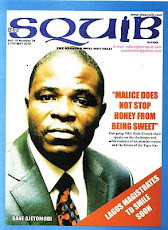

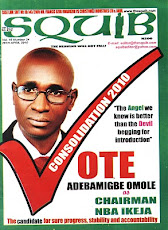
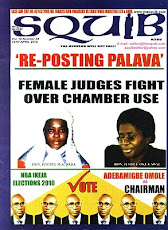
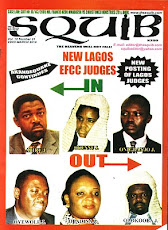
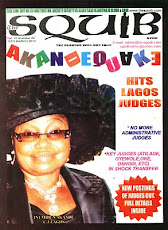


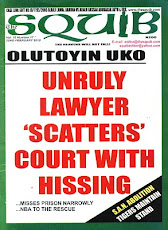
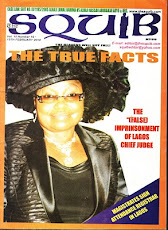
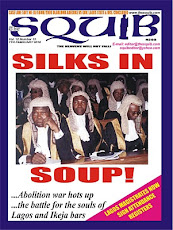


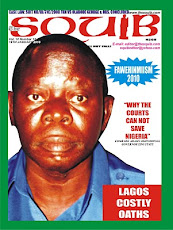

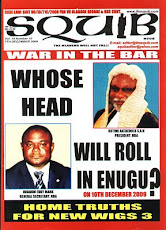

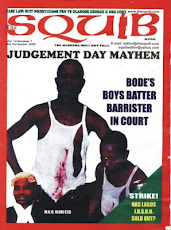


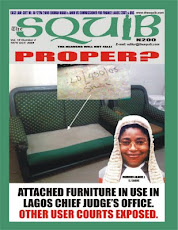






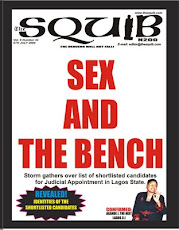


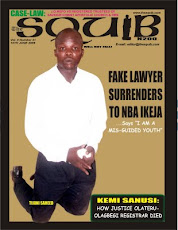

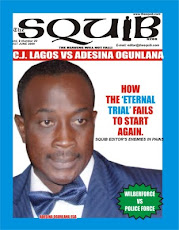
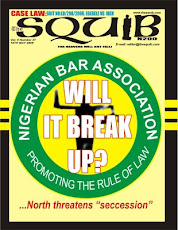
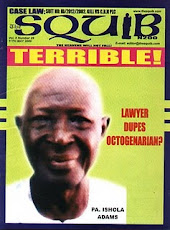





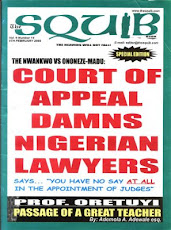








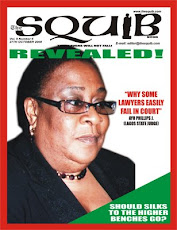

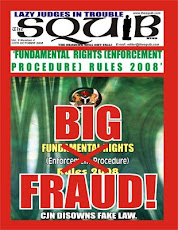
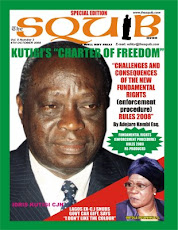
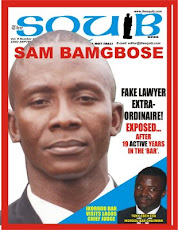


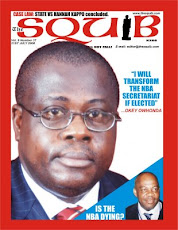

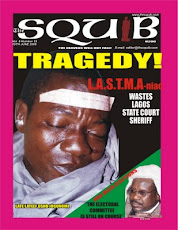
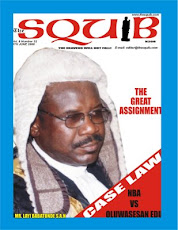

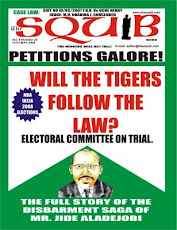

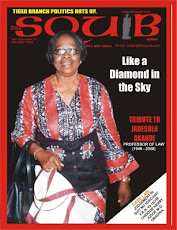
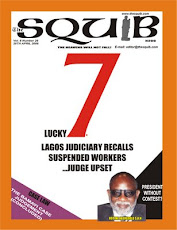

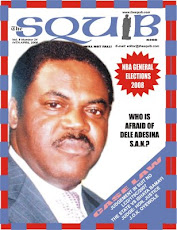

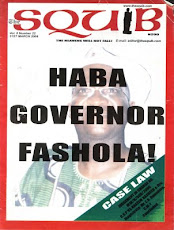

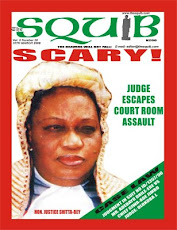




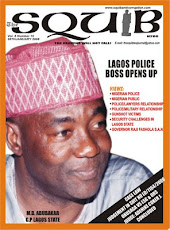
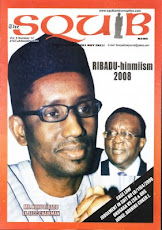
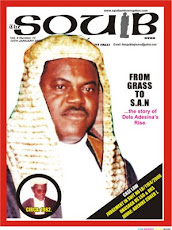









No comments:
Post a Comment